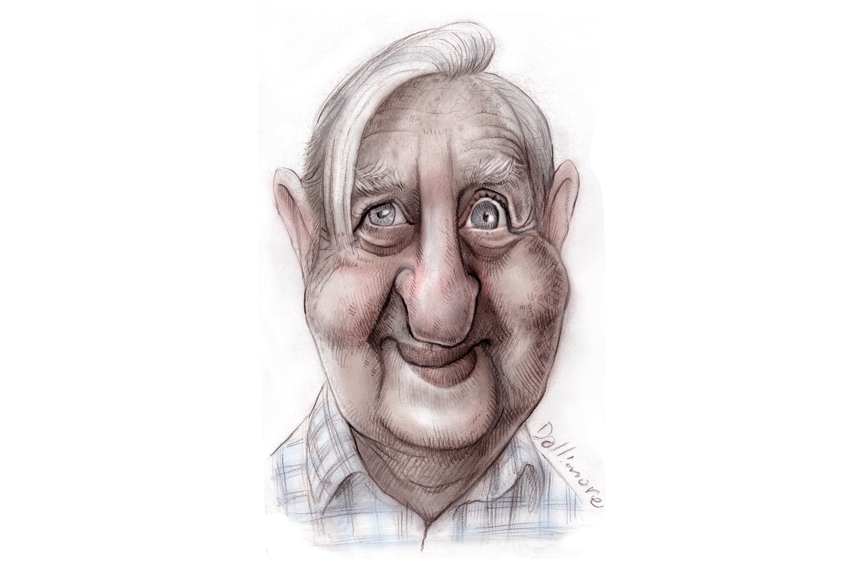
I cannot be the only one to have been irritated by the tears of Anthony Albanese MP. Yes, gender roles have changed over recent decades and it is now considered OK for politicians to cry like footballers in public. Yet Winston Churchill was able to lead his blitzed country against Hitler without blubbering in public. So was Charles de Gaulle. Harry Truman led the US through the Korean War without breaking down in public. But Albo chokes up when he thinks about the Labor party! I can’t believe he was just turning it on for the cameras, can you?
•••
The Prime Minister was right to keep telling us that politics is not to be reduced to a ratings war on television. Kevin Rudd’s appeal to ‘People Power’ may have been the only pitch available to him, but it diminished Parliament. MPs are not messenger boys for their constituents. Edmund Burke gave the classic expression of Parliamentary tradition in his great speech to his constituents in Bristol in the 1770s:
Your representative owes you, not only his industry but his judgment, and he betrays you instead of serving you if he sacrifices his judgment to your opinion.
There is no need to ask what Burke would have thought of those other MPs, including the independents, who sacrifice their judgment not to their constituents’ opinion but to their self-interest. That is the Australian situation. The public good has nothing to do with it.
•••
Some ten or more years ago the film director Tim Burstall asked me to have a look at his diaries of the 1950s. He wanted my opinion on whether they were worth publishing. He had not written them, he said, for publication. They were notebooks or aide-memoires which he would draw on for the big novel he was planning about the artists, intellectuals, philosophers, bohemians, communists and leftists of Melbourne — a story that would explore the meaning of our times. He never wrote the novel. His creativity went into his films (Petersen, Eliza Fraser, Kangaroo).
•••
But 40 or so years later he wondered whether any publisher would be interested. I read the volume and gave him my opinion that it should be published — as a revealing story of the times — but that it needed cutting and editing. I suggested one or two possible publishers. That was the last I heard of it. Now eight years after his death, he has found the publisher (Louise Adler of the Miegunyah Press) and the editor (Hilary McPhee). They have produced a handsome volume, with lots of pictures and a fine introduction and notes by McPhee (with Ann Standish). It presents the Melbourne manifestation of that great 19th and 20th century phenomenon, now vanished: international bohemia. The subject of countless books, novels, operas, songs and paintings, it ranged from Isherwood’s Berlin, the Left Bank, Greenwich Village, Bloomsbury, St Petersburg, on to Tokyo, Shanghai, Bombay, not to mention Sydney. Melbourne’s bohemia may have been at some stages richer than Sydney’s. It nurtured such spirits as Arthur Boyd, John Perceval, Barry Humphries, Germaine Greer and sundry Wittgensteinian philosophers, not to mention the extraordinary Tim and Betty Burstall. Sydney may have been less politically dim than Melbourne. Under the freethinking influence of ex- and anti-communist Professor John Anderson, it had few illusions about Stalin. The title Memoirs of a Young Bastard is an allusion to Burstall’s parents’ decision to declare him a ward of the court, in the hope of preventing or delaying his marriage to the pregnant Betty. His quarrel with his parents, who moved to England, was never healed. But the telling point is that Burstall’s Memoirs casts a cold eye over the Melbourne bohemia. His circle, largely centred on Eltham, was, he says, ‘a sexual madhouse’ — in which he was a prominent patient. In her introduction, McPhee sums up sensibly: ‘There were women who were damaged and damaging, men who were shattered and insecure, others who were unscrupulous. There seems to have been remarkably little awareness or concern about the effect on children.’ The diary ends with a cheerless New Year’s Eve party and the resigned words ‘Another year.’ The entries in this volume run from November 1953 to December 1954. They include his sexual adventures and his reflections on anything from Eltham communists to the student tensions between the Western District ‘toughs’ and the intellectuals at his old school Geelong Grammar. He quotes his famous headmaster, the canny and ‘very intelligent’ Dr Darling (who was later chairman of the ABC): ‘What I want are loyal second-rate intelligences.’ Part documentary, part confession, and part exposure, Memoirs of a Young Bastard gives a clear-eyed picture of a lost bohemian age, of the dust and ashes left behind, as Browning put it, when the kissing had to stop.
•••
Three cheers again for Premier Barnett of West Australia, this time for leading the resistance to the ‘meddling’ centralism implicit in the Gonski Report on school funding: ‘This is the Commonwealth saying “We want to administer state schools.” Sorry, it ain’t gonna happen.’ In any case, important as funding obviously is, the Gonski Report shows that several Asian countries, which spend less on schooling than we do, achieve higher standards. The fundamental problem is not money but national culture, family and teaching.
•••
A final word on Parliamentary leadership spills, from Winston Churchill: ‘The loyalties which centre on Number One are enormous. If he trips, he must be sustained. If he makes mistakes, they must be covered. If he sleeps, he must not be wantonly disturbed. If he is no good, he must be poleaxed.’ But in our case it was the challenger who was poleaxed.





Comments